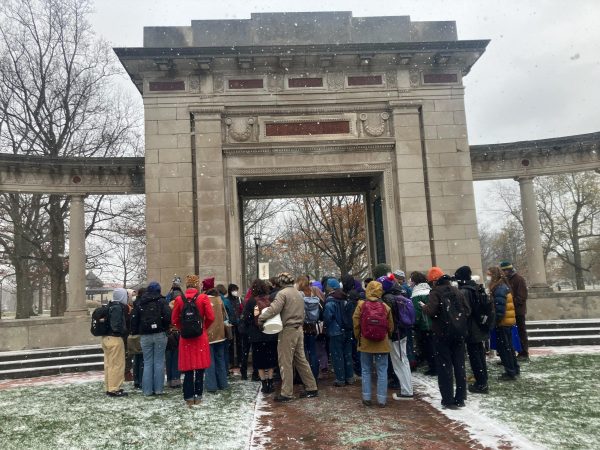“Review” Fails To Report Sexual Misconduct in Socially Responsible Manner
Editor’s note: This article contains discussion of sexual misconduct and rape culture.
Last week, the Review reported on the resignation of two Conservatory professors in the midst of sexual misconduct complaints (“Oberlin Professors Resign After Sexual Misconduct” The Oberlin Review, Sept. 7, 2018). Among the accused is James David Christie, former chair of the Organ department and world-famous musician. The allegations, however, are obscured by the article’s insensitive and dismissive tone.
As a new member of the Review team, I am deeply disappointed by the way this story was covered. It is our job to present the news in a manner that is both factual and socially responsible. The topic of sexual misconduct is definitely one we should be covering. However, last week’s article handled the subject with such flippancy, it’s difficult for readers to walk away with anything but shock. Had I seen this piece prior to publication, I would have flagged it for drastic revisions. However, now that it has been circulated, I feel compelled to address the harm it has done. I hope this response will serve to spark positive dialogue in light of what’s happened.
We absolutely need to talk about the power held by James David Christie. Silence on the part of the public can only serve to perpetuate sexual misconduct. The relationship between Conservatory student and teacher is built on trust. As a world-renowned organist, Christie had substantial leverage over his students. He was able to grant students once-in-a-lifetime opportunities. In such a position, it would be difficult to find a reason not to trust him.
Additionally, many victims fear retaliation for reporting sexual misconduct. In a field where social connections are vital to success, young musicians may find themselves faced with a difficult choice: Either they come forward and risk countless career opportunities, or they keep quiet in an attempt to make a name for themselves.
Finally, to some extent, Christie’s prestige serves to shield him from alleged wrongdoing. Who is the public inclined to believe — the beloved prodigy or the individuals supposedly trying to tarnish his reputation? Journalistically, it makes sense to describe Christie’s occupation and authority at the Conservatory in a piece about his resignation. However, there’s a not-so-fine line between detailed context and obvious deflection of sexual misconduct allegations.
Nobody is trying to argue that James David Christie is not a talented organist. But that is irrelevant to whether he has inflicted harm on multiple individuals.
Perpetrators, more often than not, are our friends, family members, mentors, or partners. They are individuals we deem “normal,” or even “amazing.” Of course it’s difficult to reconcile a person’s admirable qualities with their deleterious actions. That’s classic cognitive dissonance. And this makes it all the more important that we consciously try to hold perpetrators accountable, regardless of who they are or what they’ve accomplished
Sometimes, the devil just doesn’t need another advocate. Scroll through the comments section on any online article about sexual assault and you will see what I mean. Victim-blaming and gaslighting are pervasive in our society. The attitudes upheld by last week’s piece are commonplace. This incident, unfortunately, is part of a broader pattern.
If we don’t recognize this, then we are only furthering a culture that alienates survivors. Regardless of what the author intended it to be, last week’s piece perpetuates attitudes that deter survivors from coming forward.
I believe the Review has a certain obligation to cover the important issues of this campus, including sexual misconduct allegations. But we can do so without invalidating the struggles of those who’ve been through trauma. We can keep the Oberlin community informed while still holding ourselves accountable for the way we report controversial incidents. The biases in this piece are woven into our everyday lives. Whether you are a journalist or not, I urge you to ask yourself: Are you fostering an environment where people feel safe coming forward after being victimized?
If you have been affected by issues related to those discussed above, the Nord Center can provide you with free and confidential services. For emergencies, call the 24/7 Crisis Hotline at 1-800-888-6161. For non-emergencies, call the Sexual Assault Services Hotline at 440-204-4359.



